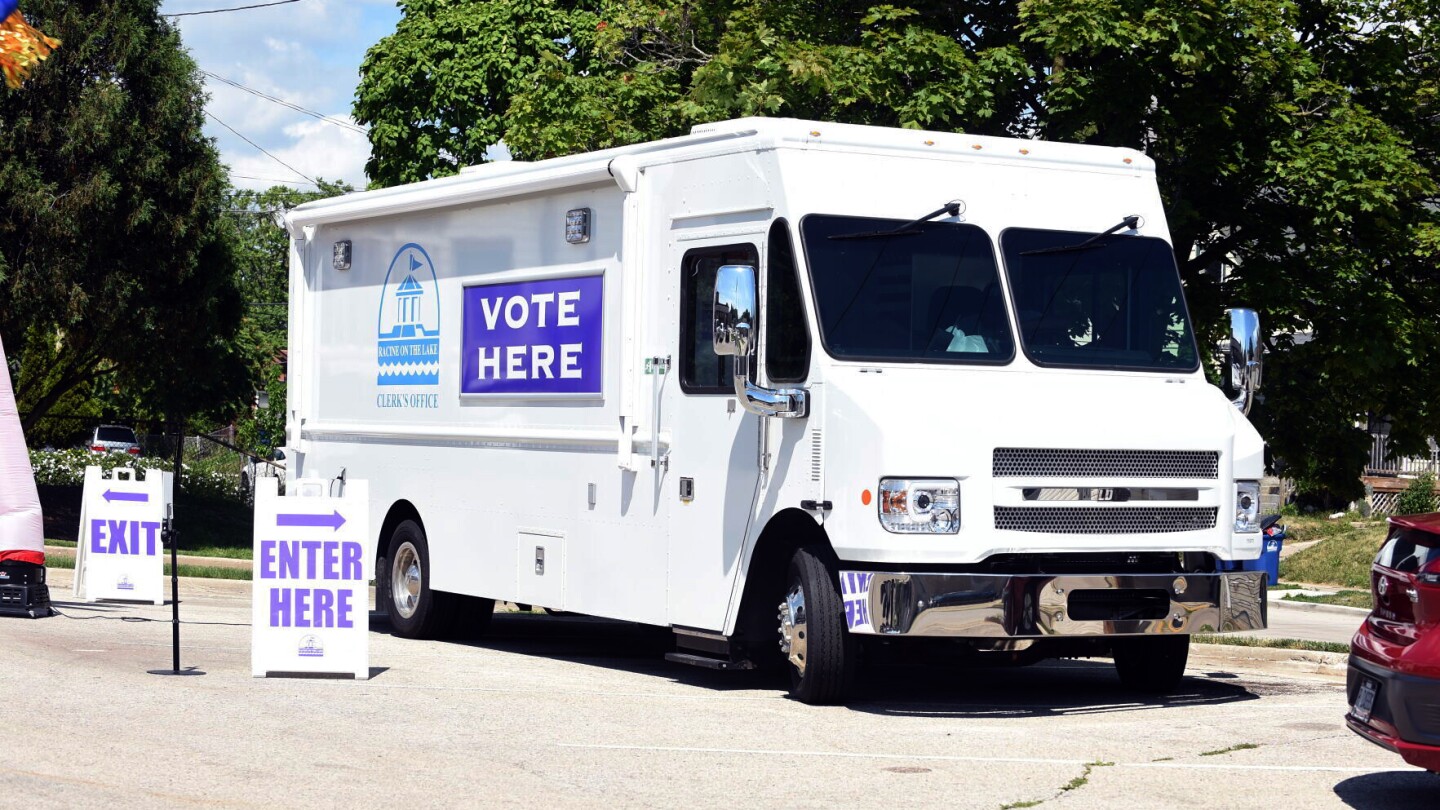In a pivotal decision, the Wisconsin Supreme Court has determined that a lawsuit challenging the deployment of a mobile voting van in the 2022 elections lacked a valid legal standing. The ruling could set the stage for the continued use of such mobile voting units in future elections across the state.
A Republican official had filed the suit aiming to prohibit mobile voting vans, specifically targeting their use in the battleground state of Wisconsin. However, the court’s decision, which skirted the legality of mobile voting sites, leaves the door open for their use in upcoming elections.
Racine was the only city to utilize a mobile voting van, which was deployed during a primary election in 2022. The van facilitated absentee voting for two weeks prior to the election. Despite the lawsuit, Racine officials and the Democratic National Committee maintain that the use of such vans is not prohibited by state law. With the court’s ruling, Racine plans to deploy the van again for the state’s elections in April, emphasizing its role in voter accessibility.
The court’s decision was split, with a 4-3 vote to dismiss the case, aligning four liberal justices against three conservative dissenters. The crux of the dismissal lay in the court’s determination that Ken Brown, the Republican Party chairman of Racine County who initiated the lawsuit, did not qualify as “aggrieved” under state law, and thus lacked the standing to sue.
Justice Rebecca Bradley, in her dissent, expressed concern that the ruling leaves significant election law decisions unexamined by the judiciary, thereby impacting voters’ ability to challenge perceived violations. “The majority, once again, refashions the law to its own liking as it shuts the doors of the courthouse to voters,” Bradley noted.
Lucas Vebber of the Wisconsin Institute for Law and Liberty, representing Brown, voiced disappointment in the ruling, suggesting it hinders Wisconsin citizens from holding officials accountable. Conversely, Democratic Attorney General Josh Kaul lauded the decision, highlighting that it ensures the availability of in-person absentee voting without unwarranted restrictions.
Republicans argued that mobile voting sites contravene state laws, increase the risk of voter fraud, and were strategically used to enhance Democratic turnout. State laws stipulate that early voting sites must not favor any political party and need to be situated as close as feasible to the clerk’s office.
The city of Racine acquired the van using funds from the Center for Tech and Civic Life, a nonprofit backed by Mark Zuckerberg and his wife. These grants, dubbed “Zuckerbucks” by critics, have been a point of contention among Republicans who argue they skewed voter turnout in favor of Democrats.
In 2022, Wisconsin voters passed a constitutional amendment, backed by Republicans, which bans private funding for election administration. Brown’s complaint, lodged after the primary, alleged the van was used exclusively in Democratic-leaning areas, a claim disputed by Racine’s city Clerk, Tara McMenamin, who clarified the van’s routes covered multiple wards traditionally favoring Democrats.
The Wisconsin Elections Commission dismissed Brown’s complaint due to lack of probable cause, leading to his lawsuit. Although a Racine County Circuit Court initially sided with Brown, stating mobile voting sites were not sanctioned by state law, the Supreme Court ultimately concluded Brown did not demonstrate personal harm from the commission’s decision.






